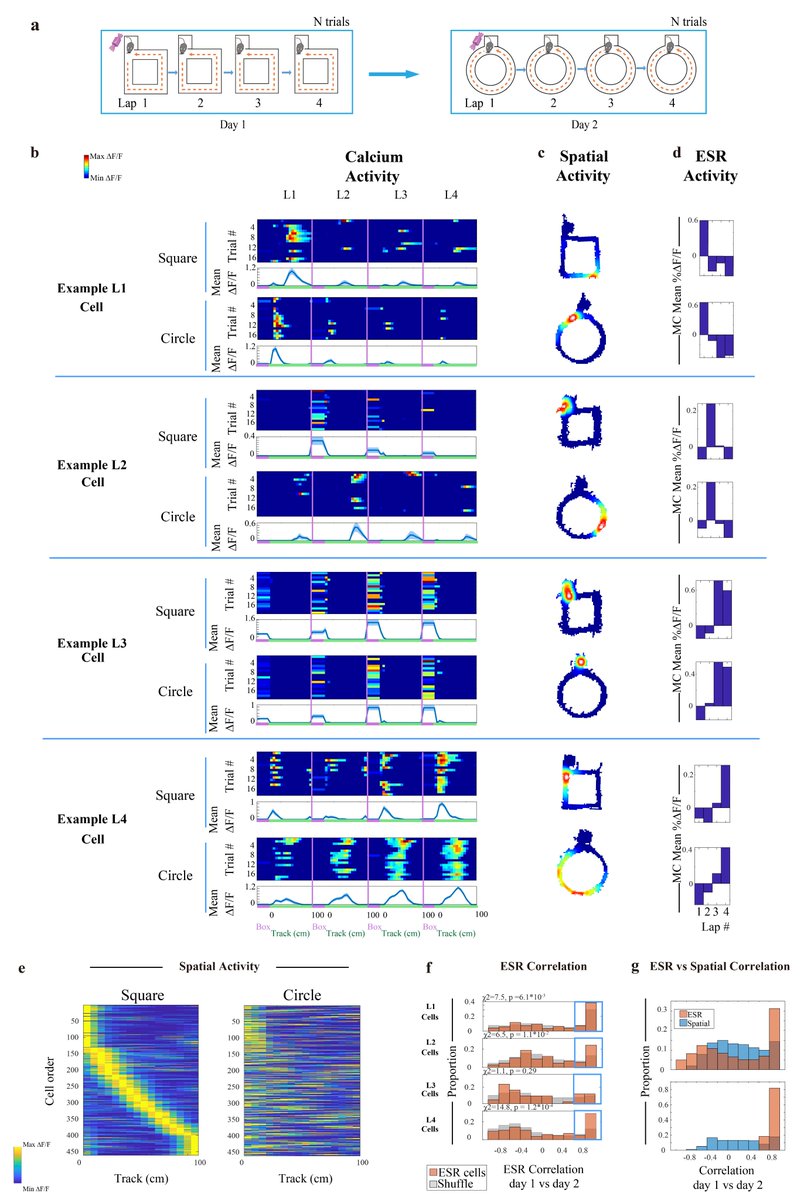Hello friends! While we are going through these unprecedented times, I wanted to share the main results of my PhD work, which is out today in Nature Neuroscience.
It studied how the brain perceives the experiences of daily life. (1/n)
It studied how the brain perceives the experiences of daily life. (1/n)
In a (perhaps slightly cheesy way), it is a reminder that even in our current tragic predicament, "this too shall pass", and one day we shall be able to compartmentalize what happened and chunk it away. (2/n)
Precisely, we identified a neural code in the hippocampus which is dedicated to "chunking" experience into discrete units. Commonsensically, we all describe our days in terms of discrete events, and now we have identified a neural code dedicated to tracking events. (3/n)
We designed a new behavioural task in which mice ran repeatedly around a square maze. Mice received reward once every 4 such materially identical lap events. We report hippocampal CA1 neurons whose activity was not only modulated by spatial location but also by lap #. (4/n)
For those of you who know about hippocampal coding, there is an emerging idea based on other beautiful studies that hippocampus is encoding continuous parametric variables during experience (O& #39;Keefe et al, Pastalkova et al, MacDonald et al, Aronov et al, and others). (5/n)
On the other hand, our study finds that the hippocampus has a separate organization of experience, not in this Newtonian (continuous space,time) manner, but in terms of discrete subdivisions (events). (6/n)
This code occurs alongside the hippocampal code for continuous variables, and the two can be separately manipulated without affecting the other. (7/n)
Why might this neural code dedicated to events be useful for the brain? Besides allowing us to compartmentalize our experience separately and discretely as distinct units, it potentially also allows us to transfer knowledge. (8/n)
Indeed, events can be thought of as abstract and generalizable entities. For example, two different dinner experiences can share the same set of events: eating an appetizer, main course, dessert, even if they occur at different restaurants, and involve different foods. (9/n)
In fact, we conducted a intriguing experiment where we show that this code for events is preserved across different environments -- even when the code for space completely changes (remaps)! see Figure below. (10/n)
Therefore -- even when other codes change with the world, the event code can capture abstract commonalities between experiences. (11/n)
Here is the link to the paper: https://www.nature.com/articles/s41593-020-0614-x
(12/n)">https://www.nature.com/articles/...
(12/n)">https://www.nature.com/articles/...
For those of you who know, this paper underwent alot of growing pains, heartache, and revisions... and I could not have gone through it all without the support of family and friends. (13/n)
Susumu Tonegawa was the most wonderful and supportive PhD supervisor I could have asked for. My partners in crime: Winnie Yang, and Jared Martin, made this study possible. Thank you all! (14/n)
And keep safe :)

 Read on Twitter
Read on Twitter


